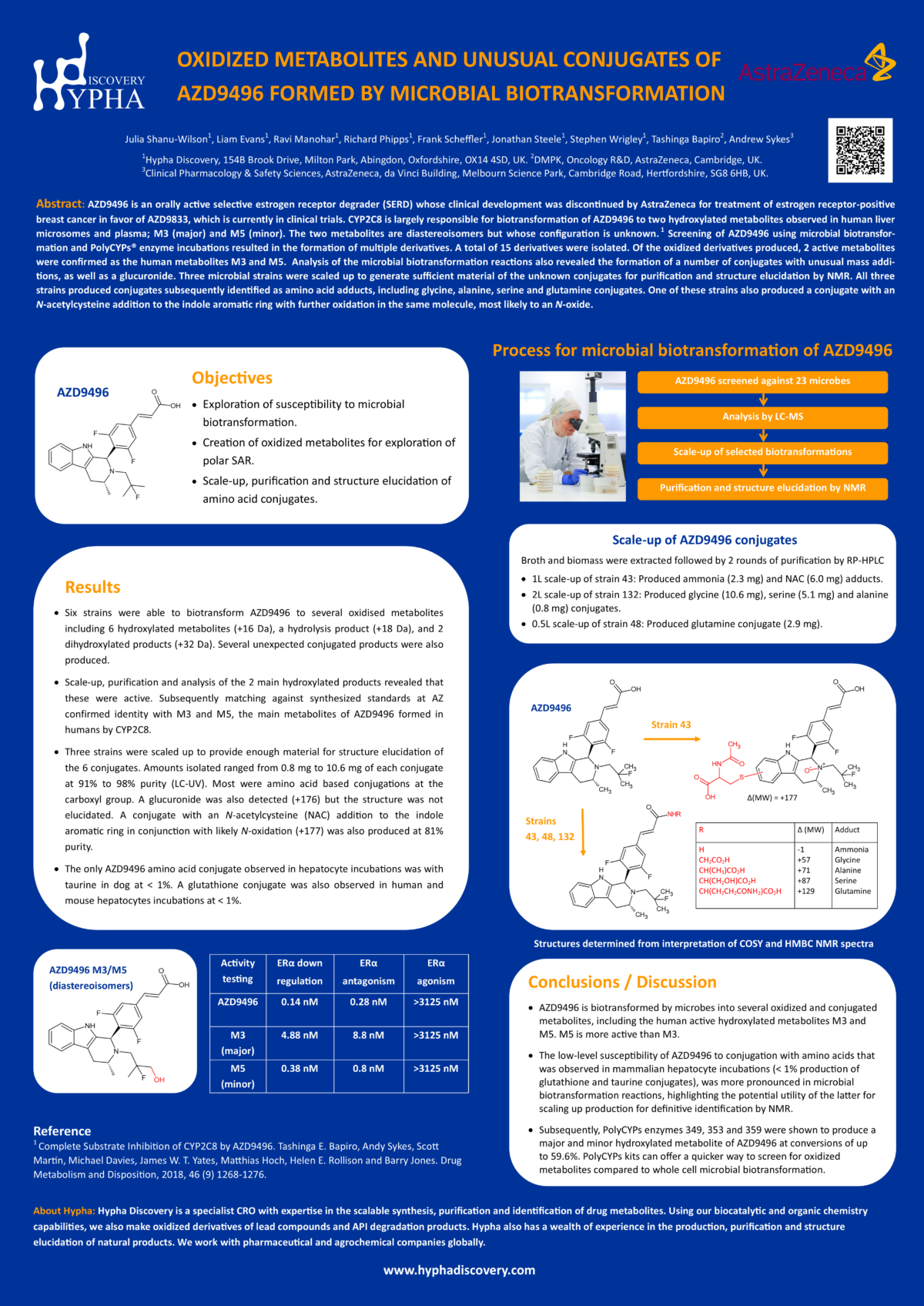Presented at: ISSX/MDO meeting in Seattle, September 2022

Oxidized Metabolites and Unusual Conjugates of AZD9496 formed by microbial biotransformation
Abstract
AZD9496 is an orally active selective estrogen receptor degrader (SERD) whose clinical development was discontinued by AstraZeneca for treatment of estrogen receptor-positive breast cancer in favor of AZD9833, which is currently in clinical trials.
CYP2C8 is largely responsible for biotransformation of AZD9496 to two hydroxylated metabolites observed in human liver microsomes and plasma; M3 (major) and M5 (minor). The two metabolites are diastereoisomers but whose configuration is unknown. 1
Screening of AZD9496 using microbial biotransformation and PolyCYPs® enzyme incubations resulted in the formation of multiple derivatives. A total of 15 derivatives were isolated. Of the oxidized derivatives produced, 2 active metabolites were confirmed as the human metabolites M3 and M5.
Analysis of the microbial biotransformation reactions also revealed the formation of a number of conjugates with unusual mass additions, as well as a glucuronide. Three microbial strains were scaled up to generate sufficient material of the unknown conjugates for purification and structure elucidation by NMR.
All three strains produced conjugates subsequently identified as amino acid adducts, including glycine, alanine, serine and glutamine conjugates. One of these strains also produced a conjugate with an N-acetylcysteine addition to the indole aromatic ring with further oxidation in the same molecule, most likely to an N-oxide.